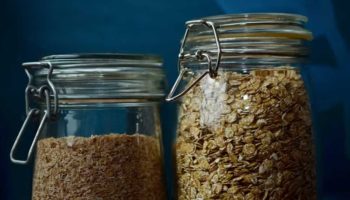Some varieties of vegetables are toxic when consumed raw, which is why you should cook them before eating. We explain here which vegetable varieties are involved and what you should consider.
Certain vegetable plants naturally contain toxins to protect themselves from predators and pests. Some of these compounds are also toxic to humans. However, you can neutralize some of these toxins by heating them.
Be cautious with these 3 vegetables that should never be eaten raw
1. Raw Potatoes Contain Solanine
Raw potatoes naturally contain solanine, which is toxic to humans. Therefore, you should not eat raw potatoes but cook them before consumption.
Potatoes, as members of the Solanaceae family, produce solanine to protect themselves from parasites and pathogens. Normally, one kilogram of fresh potatoes contains less than 100 milligrams of solanine. This is safe for normal consumption, as it is recommended not to consume more than 0.5 milligrams of solanine per kilogram of body weight per day.
The solanine concentration is particularly high in green areas and potato sprouts. Mild solanine poisoning can cause tingling and burning in the throat, as well as gastrointestinal disorders. Severe poisonings can also lead to consciousness disorders.
When preparing potatoes, pay attention to:
- Store potatoes in a dark, cool, and dry place.
- Cut buds and green areas generously.
- Remove the potato skin before or after cooking.
- Cook potatoes until they are well done.
- Discard the cooking water after boiling, as solanine goes into the water during cooking.
- Do not use green or heavily sprouted potatoes.
- If a potato tastes bitter, do not eat it.
2. Raw Beans Contain Phasin
Raw beans contain phasin, which belongs to the lectin group. This protein compound protects the plant from predators, but it is already toxic to humans in small amounts: phasin disrupts the oxygen transport in our bloodstream and the absorption of nutrients in the intestine. Raw red kidney beans and green beans particularly contain phasin. Therefore, you should never eat raw beans.
Even small amounts of raw beans can cause severe poisoning symptoms: gastrointestinal disorders, fever, seizures, and shock. These symptoms usually occur two to three hours after consumption.
The good news: You can destroy the phasin in beans by cooking them at a high temperature. Cook the beans for at least ten to fifteen minutes in water. Avoid simmering or steaming, as the required temperature is not always reached. This applies to both raw and frozen beans. You do not need to cook canned beans – they have already been heated sufficiently. And you can also use the bean cooking water.
3. Be cautious with other legumes too!
Not only beans contain phasin, but also other legumes, such as chickpeas, for example. The presence of hydrogen cyanide, which is present in large quantities in lima beans or urd beans, is also problematic. Just like with phasin, you will destroy hydrogen cyanide by cooking for at least 15 minutes. Important: definitely discard the cooking water, as hydrogen cyanide goes into the cooking water.
Other vegetables you should cook
In addition to the vegetables mentioned earlier, there are others you should not eat raw:
- Cassava: Cassava contains hydrogen cyanide, which can be lethal even in small amounts. Cassava is edible only after undergoing a multi-step processing.
- Rhubarb, Spinach, Red Beets, Sweet Potato, Swiss Chard: These vegetables contain oxalic acid. Oxalic acid inhibits the absorption of minerals such as magnesium, iron, and calcium. In addition to a potential risk of mineral deficiency, oxalic acid can promote the formation of kidney stones and damage the kidneys. Healthy individuals tolerate oxalic acid consumed in normal amounts well—however, people with kidney problems should avoid these foods. Peeling, blanching, and cooking significantly reduce the oxalic acid content. Oxalic acid goes into the cooking water, so you should not reuse the cooking water.



